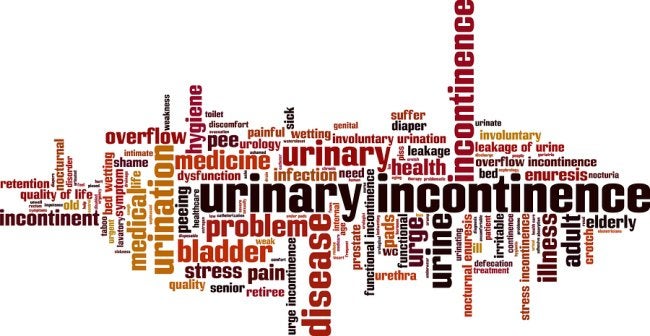Treatment Options for Women with Incontinence

Urinary incontinence can cause an enormous amount of anxiety for women, but if it is happening to you, you should know that you are not alone. Incontinence impacts the lives of millions of women of all ages in the U.S. Up to 80% of the 25 million people who live with urinary incontinence are women. The good news for women with incontinence is that you don’t have to suffer in silence. Multiple treatment options are available to control your symptoms and let you approach life with confidence again. Help starts with a visit to your urologist, who may recommend one of these treatments for your incontinence symptoms.
Behavioral Training
In some cases, incontinence symptoms can be overcome with behavioral training, such as bladder training. Bladder training involves scheduling visits to the bathroom and gradually increasing the time between visits, delaying urination for a set period of time when the urge strikes, and doing Kegel exercises to give you better control of the pelvic muscles that stop the flow of urine. Some women find that these exercises help them get adequate control of their symptoms without further treatment.
Medications
When behavioral training is not sufficient, your urologist may recommend medications. There are a number of different medications that can help with incontinence. The one your doctor selects for you depends on a number of different factors, including the type of incontinence you have. For instance, estrogen creams can help with stress incontinence, while Botox can be used to treat urge incontinence. Medications can be used alone or in conjunction with behavioral training.
Lifestyle Modifications
Alongside other treatments, your doctor may recommend some lifestyle changes that could help control your incontinence. Avoiding overconsumption of fluids, wearing a tampon when you jog or dance to put pressure on your urethra to reduce leaks, and avoiding alcohol and caffeine can all be helpful.
Don’t let incontinence impact your life for another day. At Urology Associates, PC, we can help you control your incontinence symptoms and get back to enjoying the activities you love. Make an appointment with a urologist in Tennessee today by calling (855) 901-1338.
Recent Posts
categories
- Uncategorized
- Bladder Cancer
- Women's Sexual Health
- MonaLisa Touch
- Urology
- Urologist
- Erectile Dysfunction
- Kidney Cancer
- Incontinence
- Prostate
- MonaLisa Touch Laser Treatment
- Kidney Stones
- Urinary Tract Infections
- Event
- Sexual Dysfunction
- Testicular Cancer
- Prostate Cancer
- Urology Surgery Center
- urinary incontinence
- vaginismus
- noncoital pain disorder
- Hypoactive Sexual Desire Disorder
- Infographic
- provenge
- Xofigo
- robotic surgery
- hormone replacement
- diabetes
- renal cell carcinoma
- pelvic pain
- hematuria
- sexual health
- chronic testicular pain
- premature ejaculation
- Men's Health Clinic
- Dr. Melvin Seard
- Interstitial Cystitis
- vasectomy
- overactive bladder
- vaginal atrophy
- nocturia
- bladder infections
- urethral strictures
- Acute Epididymitis
- low sex drive
- circumcision
- pelvic floor dysfunction
- Peyronie's Disease
- prostatitis
- female sexual dysfunction
- varicocele
- difficult urination
- low libido
- PSA levels
- male fertility
- penile prosthesis
- prostatic intraepithelial neoplasia
- male infertility
- estrogen levels
- nurse navigator
- stress urinary incontinence
- vaginal yeast infection
- elevated psa
- painful sex
- adult circumcision
- epididymitis
- OAB
- kidney infection
- penile cancer
- pelvic organ prolapse
- Vasectomy Reversal
- bone health
- cystectomies
- clinical trials
- bloody urine
- Advanced Therapeutic Center
- WISH MedSpa
- neurogenic bladder
- WISH Team
- prostate biopsies
- BPH
- fecal incontinence
- lithotripsy
- osteoporosis
- kidney cysts
